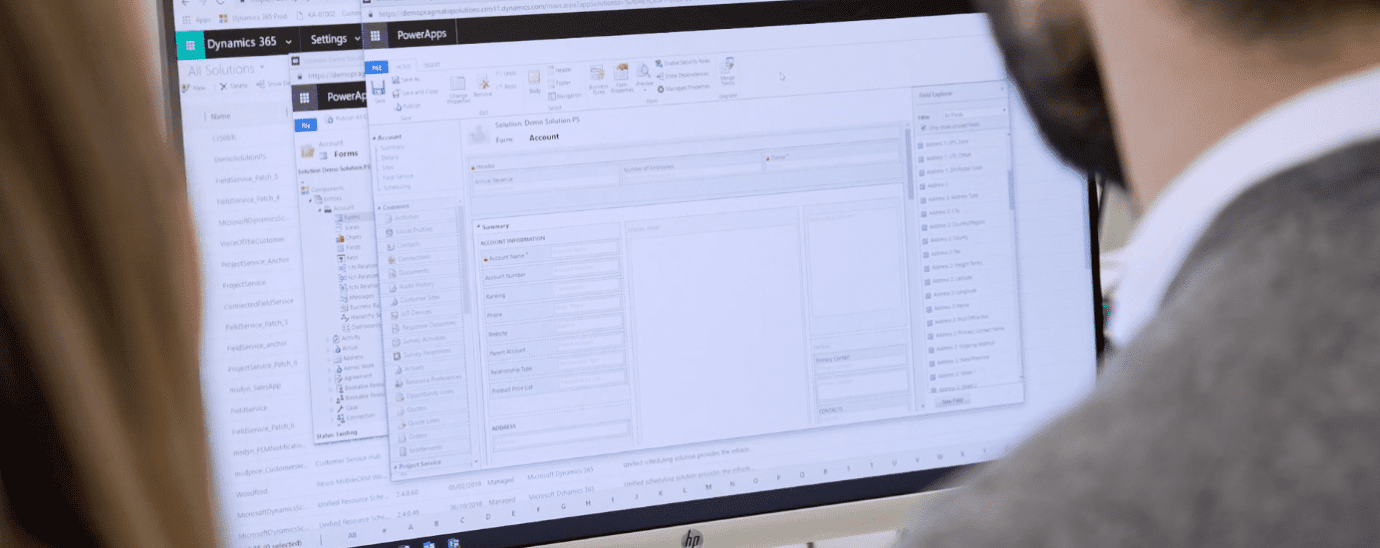Are you using your CRM to its full potential?

Implementing a Customer Relationship Management (CRM) solution can give your business a great advantage over others. However, having one does not guarantee you an immediate return on investment. You must know how to utilise the software’s functionality and features to their full potential if you want to have a chance at increasing your business revenue.
To leverage your CRM system fully here are a few things to consider…
Technology Updates
One of the most common reasons for poor user adoption, or users working outside of the CRM, is when the technology becomes outdated and out of line with business processes. Cloud-based CRM solutions offer the ability to be updated with ease and ensure your technology does not become archaic; an example of this is Microsoft Dynamics 365. Microsoft roll out two major updates a year, alongside incremental updates to ensure the technology is kept up to date.
Take Advantage of Automation
There is so much functionality now available to enable you to automate your internal business processes. Repetitive administration tasks are often time-consuming and leave room for human error, therefore, automating these tasks will improve efficiency, save time and ensure accuracy.
Examples of where automation can be used are; invoice processing, employee on-boarding, social media management, expense tracking, etc. Deciding where to start with automation can feel overwhelming but starting with those small tasks that take time on a recurring bases will get you off on the right foot.
Customisations
Many CRM solutions, specifically bespoke CRM solutions, can be fully customised. Every business is different, so there is no real ‘one-fits-all’ approach, even if you are in the same industry the way in which you operate will be unique. A bespoke or customisable CRM allows you to work the way you want to, fitting around your processes and therefore increasing user adoption. It also guarantees that no irrelevant functionality which is at a detriment to the way you operate.
Scalability of your CRM is also vital if you wish to grow or develop, and your requirements may change in time. A scalable solution will adapt to your evolving needs and additional features or functionality can be added with ease.
Streamline Your Data
This seems obvious and yes, your CRM solution should be used for organising your important business data, but you must put in the work too. Firstly, you should standardise your methods for imputing data, as a basic example and a minimum, fields required could be first name, last name, address, email and phone number. Be meticulous over counting digits in phone numbers and the use of ‘.com’ or ‘.co.uk’ on email addresses.
Performing a data cleanse as part of your regular practise also helps to avoid working with old data that is no longer usable. Putting into place actions to update your data as a group exercise is also a great way to educate one another on your customers, their needs and their historic interactions with you.
Reporting and Analytics
Having the ability to analyse your short comings, as well as highlight your successes is essential for business growth and development. A good CRM solution should include dashboards which provide you with the ability to drill down into your data to gain valuable insights. Using your data to its full potential can demonstrate a clear customer journey, indicate a change in a lead or offer insight into customer retention strategies. Additionally, some reporting tools can also generate ‘what if’ strategies to help you to make more informed business decisions.
Integrations with Other Business Software
Ensuring your CRM integrates with the other business software you use is key to maximising the use of your solution. For example, integrating your Gmail or Outlook account so you can send and track any correspondence within your CRM.
Integration is another reason to include all departments across your business when you are considering implementation. Your marketing department, who is responsible for creating communications for your clients, may already be using Mailchimp or Autopilot. Ensuring your CRM integrates with their department specific technology can open opportunities for you to better align with your customers and their needs.
Mobilise Your Workforce
The ease in which your workforce can access your business data and the ability to do so from any location can be the difference between, for example, making a sale or not.
A CRM that can be accessed from any location on either a mobile, tablet or laptop and offers you all the same functionality and features as your desktop version is the golden ticket of the CRM world. Providing your team with the flexibility to work from anywhere at any time, increases productivity, efficiency and ultimately can increase revenue.
Train Your Staff
Having a CRM solution that no one really knows how to use is one of the biggest pitfalls. Devoting time and resources to training your workforce how to use all the features and functionality of your CRM is critical. Likewise, when you have new staff, training them to use your solution should be part of the on-boarding process.
If you are working with a vendor to design or maintain your CRM, investigate what training they offer and establish whether it can be ongoing.
Final thoughts:
Having a CRM solution is only the start. Ensuring you choose the correct solution for your business with all the features and functionality you require, is the only way to guarantee your return on investment.
